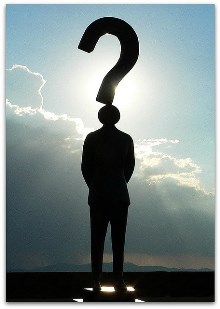COMPELLING TRUTH
Should you be Agnostic? - Page 3
By Robin Schumacher


Single Page/Printer Friendly
Continued from Page Two

Conditions 2 and 3
Moving on from Huxley's first criterion brings the discussion to his second and third standards, which are nearly identical in nature. Huxley says that a belief should be discarded if the sole purpose is to satisfy some psychological desire. He further holds that if the belief is not well-grounded from a "reality perspective", false hopes may be manufactured in the mind. This benchmark measure for a belief is certainly rational, as the only reason to believe anything is because that particular thing (or claim of truth) is true.Oftentimes, the psychiatrist Sigmund Freud is quoted to show how religion fails such a test. He says, "[Religious beliefs] are illusions, fulfillments of the oldest, strongest, and most urgent wishes of mankind.... We call belief an illusion when a wish-fulfillment is a prominent factor in its motivation, and in doing so we disregard its relation to reality, just as the illusion itself sets no store by verification." [4]
However, Freud's criteria do nothing to prove or disprove God for his sword cuts in both directions. Could it not be true that the atheist/agnostic has wishes and urges of their own? Perhaps their wish is that a God who will call them to account for their actions does not exist? Such a desire can be very motivating and drive a person to hold an atheistic/agnostic position. Freud's words have no power whatsoever to determine if the truth claims of Christianity are valid or not.
Freudian thoughts aside, how does the New Testament stand up against Huxley's second and third standards? As it does with Huxley's first measure, the New Testament does extremely well.
First, from a legal or historical perspective, no other antique document comes even close to the New Testament in passing the general criteria for judging the validity of a historical work. The New Testament passes the bibliographical test (manuscript reliability and early dating), internal evidence test (multiple key testimonies all of which match), and the external evidence test (outside evidence that corroborates the document's testimony)—all with flying colors.
Second, the New Testament is not written as though it is a lie. The New Testament writers would not have invented accounts such as Jesus being buried by a member of the Sanhedrin, women being the first witnesses of Christ's resurrection, and other such things. They simply go against what deceptive writers would have wanted to portray.
Instead, what is found is a strong commitment to accuracy no matter where the evidence led them. Such dedication is seen in the pen of Luke: "Inasmuch as many have undertaken to compile an account of the things accomplished among us, just as they were handed down to us by those who from the beginning were eyewitnesses and servants of the word, it seemed fitting for me as well, having investigated everything carefully from the beginning, to write it out for you in consecutive order, most excellent Theophilus; so that you may know the exact truth about the things you have been taught" (Luke 1:1–4).
Lastly, as has already been pointed out, the New Testament writers died for their testimony. As theologian and professor Peter Kreeft points out: "Why would the apostles lie? ... If they lied, what was their motive...? What they got out of it was misunderstanding, rejection, persecution, torture, and martyrdom. Hardly a list of perks!" [5]
The treatment Kreeft lists certainly is not desirable from a psychological perspective and would produce no false hopes in the disciples, as they would obviously know their claims were false if they were lying. Adding this to the previous arguments, we see that the New Testament accounts overcome Huxley's second and third hurdles for being agnostic.

Continue to Page Four
Footnotes
Image Credit: cristinacosta; "question"; Creative Commons
comments powered by Disqus
Published 9-4-15

